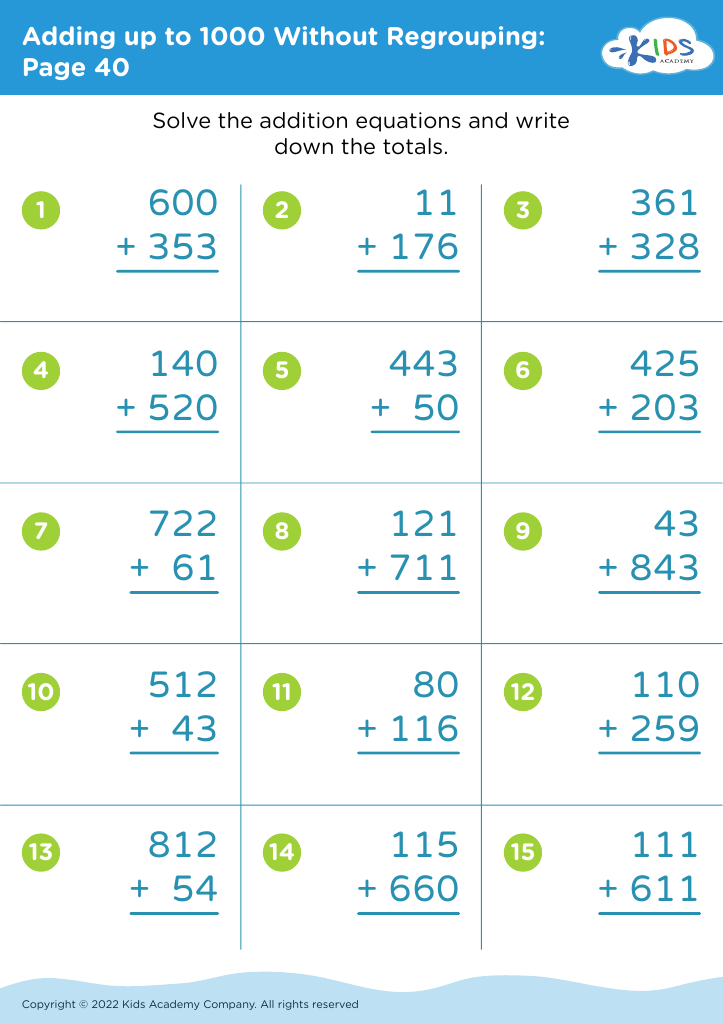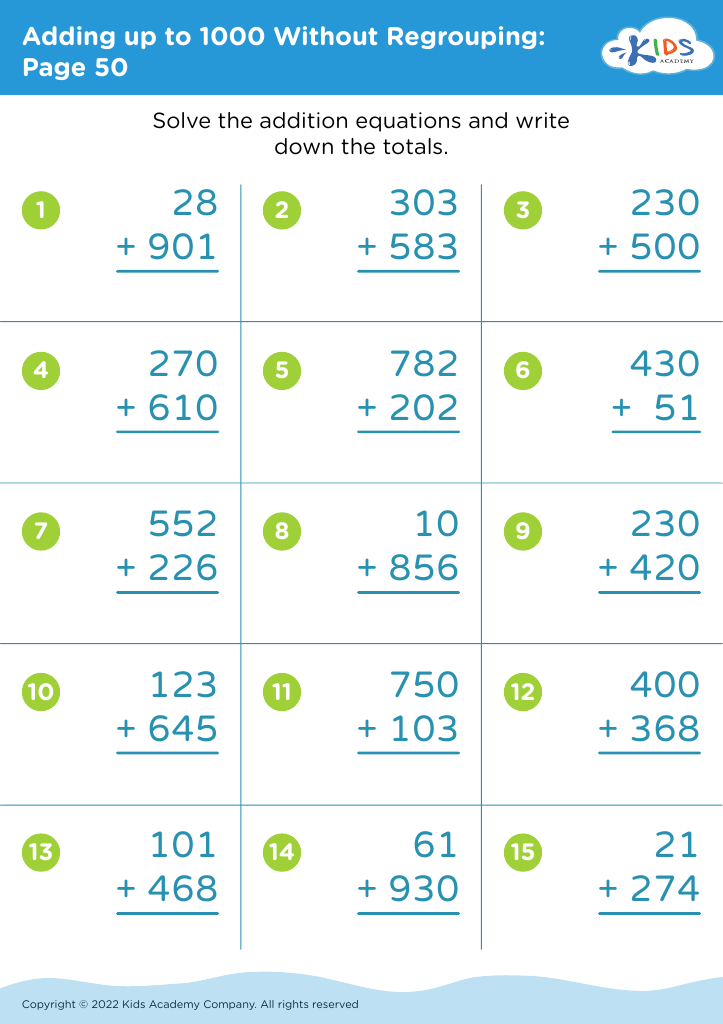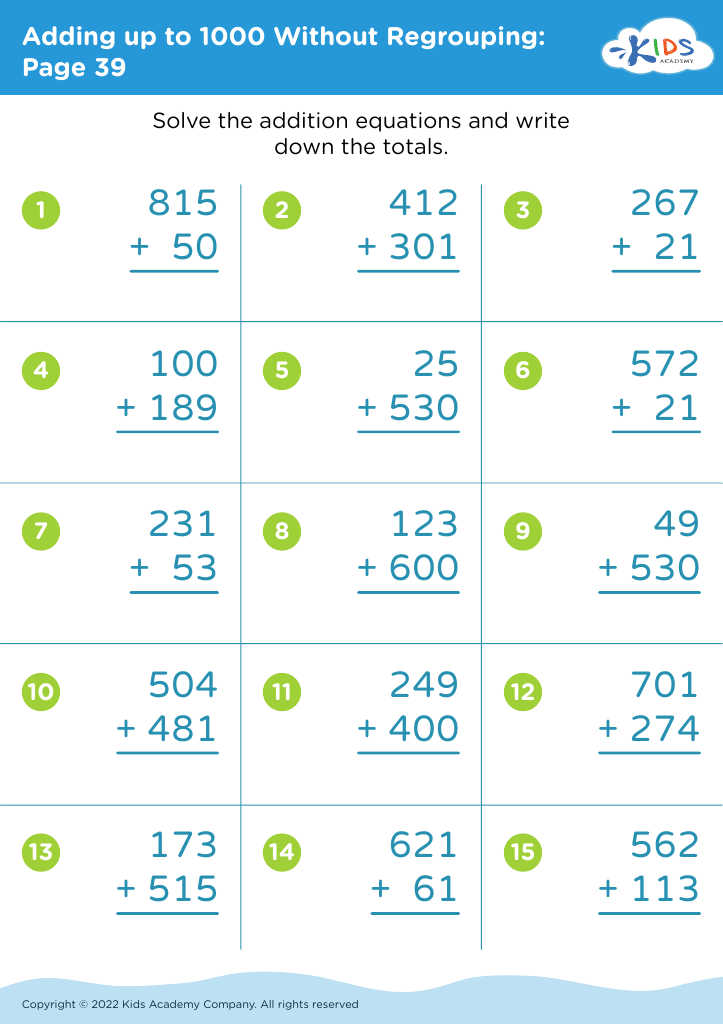Alphabet Recognition Addition & Subtraction Worksheets for 9-Year-Olds
4 filtered results
-
From - To
Unlock your child's potential with our Alphabet Recognition Addition & Subtraction Worksheets designed for 9-year-olds. Our expertly crafted worksheets seamlessly blend essential math skills with alphabet recognition, fostering a well-rounded educational experience. These engaging activities not only reinforce basic arithmetic—like addition and subtraction—but also help children enhance their letter identification and reading abilities. Ideal for classroom settings or at-home practice, each worksheet is tailored to support the unique needs of young learners, making math fun and approachable. Visit Kids Academy to explore our full collection and turn everyday learning into an exciting adventure!
Alphabet recognition and foundational math skills like addition and subtraction are essential building blocks in a child's education. For 9-year-olds, mastering these skills signals a crucial point in their cognitive and academic development.
First, alphabet recognition is the stepping stone to reading fluency and comprehension. Strong literacy skills support effective communication, critical thinking, and the ability to learn across all subjects. When children recognize and understand the alphabet, they can decode words, read sentences, and comprehend the meaning of texts more effectively, contributing to lifelong learning and success.
Additionally, addition and subtraction are fundamental aspects of numeracy, helping children develop problem-solving abilities and logical thinking. Mastery of these core arithmetic operations is critical because they serve as the foundation for more complex math concepts like multiplication, division, fractions, and algebra, which children will encounter in later grades. Robust skills in basic math also empower students to navigate everyday tasks such as budgeting, cooking, and managing time.
By prioritizing alphabet recognition, addition, and subtraction for 9-year-olds, parents and teachers can support a well-rounded education that fosters confidence and competence in their children. These skills ultimately pave the way for academic achievement and practical life success, making them invaluable early learning milestones.























